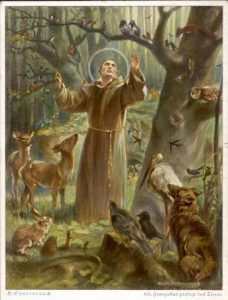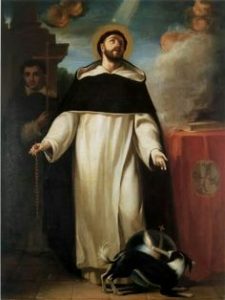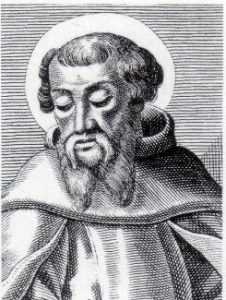
The Catholic Church has a rich history of spiritual, theological, and philosophical thought, shaped by the contributions of numerous saints and scholars. Among these, certain individuals who stand out for their exceptional intellectual and spiritual accomplishments are designated as Doctors of the Church.
This title acknowledges their significant role in elucidating and defending the teachings of the faith. Let’s explore the concept of Doctors of the Church, the selection criteria, and some of the most prominent figures who have been honored with this title.
 Defining Doctors of the Church
Defining Doctors of the Church
The title “Doctor of the Church” (Latin: Doctor Ecclesiae) is bestowed upon individuals who have made outstanding contributions to the understanding and interpretation of Catholic doctrine.
Their work typically involves clarifying complex theological concepts, defending the faith against heresies, or offering spiritual guidance to believers. The Church recognizes these individuals for their holiness, wisdom, and deep understanding of Scripture and Tradition.
Criteria for Designation
The process for declaring someone a Doctor of the Church involves stringent criteria, as determined by the Pope or a General Council of the Church. The key requirements for this title include:
- Sanctity of life: The individual must have led a life of exemplary holiness and be recognized as a saint.
- Eminence in learning: The person must have displayed exceptional wisdom and knowledge, particularly in the fields of theology or sacred Scripture.
- Proclamation by the Church: The Pope or a General Council must declare the individual as a Doctor of the Church, acknowledging their contributions to the development of Catholic doctrine.
The 37 Doctors of the Church
As of this writing, there were 37 individuals who had been recognized as Doctors of the Church. They are:
 St. Ambrose of Milan: Bishop and theologian who wrote extensively on the Scriptures, Christian ethics, and the sacraments. His most famous convert was St. Augustine.
St. Ambrose of Milan: Bishop and theologian who wrote extensively on the Scriptures, Christian ethics, and the sacraments. His most famous convert was St. Augustine.- St. Augustine of Hippo: Bishop and theologian who is considered one of the most important figures in Western Christianity. He wrote extensively on Christian doctrine, including original sin, grace, and the Trinity.
- St. Jerome: Priest and biblical scholar who is most famous for his translation of the Bible into Latin, known as the Vulgate. He also wrote extensively on theology, spirituality, and monasticism.
- St. Gregory the Great: Pope and theologian who is known for his writings on the moral and spiritual life, liturgy, and pastoral care. He is also credited with organizing the medieval papacy.
- St. John Chrysostom: Bishop and theologian who is known for his sermons and writings on Christian ethics, the sacraments, and the nature of God. He is also credited with introducing a reform of the liturgy in the Eastern Church.
- St. Basil the Great: Bishop and theologian who is known for his writings on the Holy Spirit, Christian doctrine, and monasticism. He also played a key role in the development of the liturgy in the Eastern Church.
- St. Gregory of Nazianzus: Bishop and theologian who is known for his contributions to the development of the doctrine of the Trinity, and his writings on Christian ethics, spirituality, and pastoral care.
- St. Athanasius of Alexandria: Bishop and theologian who is known for his defense of the orthodox doctrine of the Trinity against Arianism, a heretical teaching that denied the divinity of Christ.
- St. Ephrem the Syrian: Deacon and theologian who is known for his hymns and poems on Christian doctrine, ethics, and spirituality. He is also credited with the development of the liturgy in the Eastern Church.
- St. Hilary of Poitiers: Bishop and theologian who is known for his writings on the Trinity and the divinity of Christ, which were influential in the debates of the fourth century. He is also credited with the development of the liturgy in the Western Church.
 St. Cyril of Jerusalem: Bishop and theologian who is known for his catechetical lectures on Christian doctrine and ethics, which are considered some of the earliest examples of Christian instruction. He is also credited with the development of the liturgy in the Eastern Church.
St. Cyril of Jerusalem: Bishop and theologian who is known for his catechetical lectures on Christian doctrine and ethics, which are considered some of the earliest examples of Christian instruction. He is also credited with the development of the liturgy in the Eastern Church.- St. Cyril of Alexandria: Bishop and theologian who is known for his writings on Christology, including his defense of the doctrine of the Incarnation against Nestorianism. He is also credited with the development of the liturgy in the Eastern Church.
- St. Leo the Great: Pope and theologian who is known for his writings on the nature of Christ, the authority of the papacy, and the role of the Church in the salvation of souls. He is also credited with the defense of Rome against Attila the Hun.
- St. Peter Chrysologus: Bishop and theologian who is known for his sermons on Christian doctrine, ethics, and the life of the saints. He is also credited with the reform of the liturgy in the Western Church.
- St. Isidore of Seville: Bishop and theologian who is known for his encyclopedic works on theology, philosophy, history, and science. He is also credited with the development of the first known encyclopedia in the Western world.
- St. Bede the Venerable: Monk and historian who is known for his comprehensive history of the Church in England, and his contributions to the development of the Christian calendar and the calculation of the date of Easter.
- St. John Damascene: Priest and theologian who is known for his writings on Christian doctrine and ethics, including his influential work “An Exact Exposition of the Orthodox Faith.” He is also credited with the development of the liturgy in the Eastern Church.
- St. Peter Damian: Benedictine monk and theologian who is known for his writings on Christian ethics, including his influential work “The Book of Gomorrah” which addressed the issue of clerical celibacy and the abuse of power. He is also credited with the reform of the Benedictine Order.
- St. Anselm of Canterbury: Archbishop and theologian who is known for his writings on the existence and nature of God, and his contributions to the development of the doctrine of the atonement. He is also credited with the revival of the monastic tradition in England.
- St. Bernard of Clairvaux: Cistercian monk and theologian who is known for his writings on Christian mysticism, the nature of God, and the role of the Church in the world. He is also credited with the reform of the Cistercian Order.
 St. Anthony of Padua: Franciscan friar and preacher who is known for his sermons and writings on Christian doctrine and ethics, including his influential work “Sermons for Sundays and Festivals.” He is also credited with the renewal of the Franciscan Order.
St. Anthony of Padua: Franciscan friar and preacher who is known for his sermons and writings on Christian doctrine and ethics, including his influential work “Sermons for Sundays and Festivals.” He is also credited with the renewal of the Franciscan Order.- St. Albert the Great: Dominican friar and theologian who is known for his writings on theology, natural science, and philosophy. He is also credited with the discovery of the chemical element arsenic.
- St. Bonaventure: Franciscan friar and theologian who is known for his writings on Christian mysticism, the nature of God, and the role of the Church in the world. He is also credited with the renewal of the Franciscan Order.
- St. Thomas Aquinas: Dominican friar and theologian who is known for his extensive writings on Christian doctrine, including his influential work “Summa Theologica.” He is also credited with the synthesis of Aristotelian philosophy and Christian theology.
- St. Catherine of Siena: Dominican nun and mystic who is known for her writings on the spiritual life, including her influential work “The Dialogue of Divine Providence.” She is also credited with her work towards the reform of the Church during the Avignon Papacy.
- St. Teresa of Avila: Carmelite nun and mystic who is known for her writings on the spiritual life, including her autobiography “The Life of Teresa of Jesus” and her masterpiece “Interior Castle.” She is also credited with the reform of the Carmelite Order.
- St. John of the Cross: Carmelite friar and mystic who is known for his writings on Christian mysticism and the spiritual journey, including his influential work “The Dark Night of the Soul.” He is also credited with the reform of the Carmelite Order.
- St. Peter Canisius: Jesuit priest and theologian who is known for his contributions to the Counter-Reformation, including his work as a catechist, preacher, and writer. He is also credited with the renewal of the Jesuit Order.
- St. Robert Bellarmine: Jesuit priest and theologian who is known for his writings on the doctrine of the Church, including his defense of papal authority and the Catholic faith against Protestantism. He is also credited with the reform of the Jesuit Order.
 St. Lawrence of Brindisi: Capuchin friar and theologian who is known for his defense of the Catholic faith against Protestantism, including his debates with Martin Luther. He is also credited with the renewal of the Capuchin Order.
St. Lawrence of Brindisi: Capuchin friar and theologian who is known for his defense of the Catholic faith against Protestantism, including his debates with Martin Luther. He is also credited with the renewal of the Capuchin Order.- St. Francis de Sales: Bishop and theologian who is known for his writings on spirituality, including his influential work “Introduction to the Devout Life.” He is also credited with the founding of the Visitation Order.
- St. Alphonsus Liguori: Bishop and theologian who is known for his writings on moral theology, including his influential work “Moral Theology.” He is also credited with the founding of the Redemptorist Order.
- St. Therese of Lisieux: Carmelite nun and mystic who is known for her writings on the “Little Way” of spiritual childhood and her devotion to God. She is also known as “The Little Flower.”
- St. John of Avila: Priest and theologian who is known for his writings on the spiritual life and pastoral care, including his influential work “Audi, filia.” He is also known as the “Apostle of Andalusia.”
- St. Hildegard of Bingen: Benedictine abbess and mystic who is known for her writings on theology, natural science, medicine, and music. She is also known for her visions and prophecies.
- St. Gregory of Narek: Armenian monk and poet who is known for his mystical poetry and prayers, including his influential work “Book of Lamentations.” He is also known as “The Poet of the Armenian Nation.”
- St. Irenaeus of Lyon: This bishop, theologian, and martyr was born in the year 130 and died in 202. His writings included Against Heresies, part of which would later inspire the Our Lady Undoer of Knots devotion.




